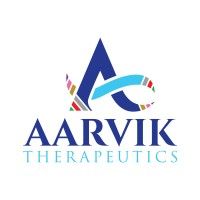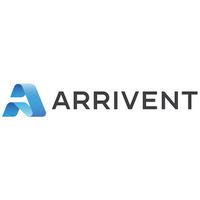HAYWARD, Calif.--(BUSINESS WIRE)--Aarvik Therapeutics, an innovative, ADC-focused biotechnology company dedicated to engineering precision medicines for cancer therapy, is pleased to announce an investment by Laurus Labs, India in Aarvik’s recently-concluded Series Seed 2 financing round.
Aarvik's Series Seed 2 round, with investments from multiple investors including Laurus Labs, will allow Aarvik to further advance its exciting pipeline of ADC assets.
Since launching in 2021, Aarvik has developed its proprietary MUTTA™ (MUlti-epitope Targeting Tetravalent Antibody) plaform with a focus on developing next generation antibody drug conjugates (ADCs) that can expand the success of ADCs beyond a limited number of targets. Aarvik’s comprehensive approach facilitiates the lowering of the minimum effective dose (MED) while maintaining or improving the maximum tolerated dose (MTD) thereby significantly improving the therapeutic window. The Series Seed 2 round, which had investments from multiple investors including Laurus, is an acknowledgement of the substantial progress made by Aarvik on the MUTTA™ platform and will allow Aarvik to further advance its exciting pipeline of ADC assets.
“As part of our global support of innovation and progress in healthcare, we are delighted to invest in Aarvik’s efforts to pursue breakthroughs in oncology therapies,” said Dr. Satyanarayana Chava, Founder & CEO of Laurus Labs. “We look forward to a highly productive collaboration that results in tangible benefits for patients across the globe.”
“Aarvik is delighted to welcome Laurus Labs as an investor and a partner in our efforts to pursue improved therapies for hard-to-treat indications in cancer,” said Jagath Reddy Junutula, PhD, Co-founder, President and CEO of Aarvik Therapeutics. “Our mission to provide transformational benefits for cancer patients is greatly strengthened by our ability to work with outstanding companies like Laurus Labs.”
About Laurus Labs
Laurus Labs is a research-driven pharmaceutical and biotechnology company committed to improving global health. It holds a leadership position in developing and manufacturing select Active Pharmaceutical Ingredients (APIs) and Finished Dosage Forms (FDF) across anti-retroviral, oncology, cardiovascular, and gastro therapeutics. With strong backward integration and stringent quality standards, Laurus has built a solid reputation for high-quality, innovative solutions.
The company offers end-to-end Contract Development and Manufacturing Organization (CDMO) services, supporting innovators from early-stage development to commercial production. Laurus employs over 7,042 people, including 2,632+ scientists, and operates 15 facilities approved by global regulators like the USFDA, WHO, EMA, and more. Its “Smart and Green” chemistry approach drives sustainable manufacturing and operational excellence.
Laurus Labs generated ₹5,554 crore in revenue in FY2025 and is listed on the BSE and NSE. The company is a certified Great Place to Work and holds a “BBB” MSCI ESG rating, reflecting its commitment to transparency, integrity, and ESG principles. It is widely recognized for upholding environmental stewardship and ethical business practices.
Expanding beyond small molecules, Laurus is enhancing its capabilities in biotechnology, large molecules, cell, and gene therapies. Its diversified offerings span human and animal health APIs, intermediates, crop science, and specialty ingredients for nutrition and cosmetics. Guided by the principle “Chemistry for Better Living,” Laurus remains dedicated to advancing science for better global health outcomes. Corporate Identification No: L24239AP2005PLC047518.
For additional information, visit www.lauruslabs.com.
About Aarvik Therapeutics
Aarvik Therapeutics combines its unique, proprietary modular MUTTA™ (MUlti-epitope Targeting Tetravalent Antibody) platform with multiple target mechanisms to develop novel molecules with an improved therapeutic index for oncology targets. Backed by the extensive scientific, research, development and business expertise of its founders, Board, SAB and team members, Aarvik Therapeutics is applying its vision and passion to create transformational benefit for cancer patients.
For additional information, visit www.aarviktx.com.









